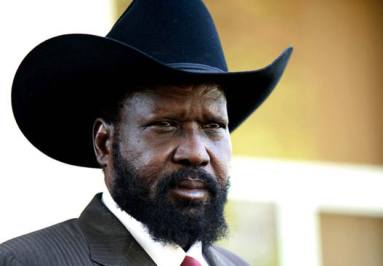South Sudanese think tank warns on creation of new states
October 6, 2015 (JUBA) – A South Sudanese think tank, The Sudd institute, has issued a policy review in which it warned that the creation of more administrative units without proper procedures and the conduct of all inclusive opinion polls in the country could have negative implications especially if not properly managed by political stakeholders.

The new arrangement, it says, creates ethnic boundaries as it isolates and group communities mainly in the Upper Nile region into administrative units exclusive of other ethnic groups.
The documents further argues that the decision of the president appears to address longstanding demands for devolution of powers and participatory democracy, reduces power wrangling at the center, responds to ethnic conflicts necessitated by perceived and real domination and mitigates new conflict dynamics created by the agreement on the resolution of the conflict in republic of South Sudan which the two main warring parties and other stakeholders have signed in August to end more 20 month civil war.
It notes that the order has, however, received mixed reactions from the general public.
“Some citizens believe the decision is a positive development, which paves way for self-governance. On the other hand, others see it as negatively impactful, especially in light of many constraints, such as lack of consideration for constitutional”, reads the document.
President Kiir unilaterally decreed expansion of the current 10 states to 28 federal states in the country in an unexpected move announced on the state-owned South Sudan Television on Friday last week, prompting reaction from the armed opposition leader, Riek Machar, that the unilateral move was a serious violation of the peace agreement.
The South Sudanese leader’s new directive criticised his current governance system which he said has been holding the people’s power in the center in Juba, saying there was need to adopt a federal system of governance in the country, surprisingly in line with the demand of Machar’s rebel movement which the government had been rejecting at the peace talks in the Ethiopian capital, Addis Ababa, for nearly two years.
“Over the last ten years, the power which was given to you by the CPA [Comprehensive Peace Agreement] has remained in the center,” said Kiir, referring to the peace deal signed on 9 January 2005 with Sudan by then SPLM rebels to end 21-year long civil between north and south of the former Sudan.
The CPA granted South Sudanese a referendum on self-determination which resulted to overwhelming vote for secession from Sudan in 2011. He said his rationale for delaying creation of more states in devolution of powers to the people was because he was allegedly busy preparing for referendum from 2005 to 2011.
“My administration in the center was busy with issues to do with your self-determination such that you become free and sovereign state. Now, indeed you are free, therefore, there is no reason for me to retain your constitutional right for self-governance, self-reliance, self-development and determine your through free, fair and democratic elections in three years to come,” he claimed.
He went on to say that the creation of 28 states, which shall come into effect within 30 days, will provide an opportunity to “develop your locality, your home villages through mobilization of local and states resources.”
“We should therefore abandon culture of war and embrace culture of peace, co-existence and hard work such [that] you and I together develop our country because our country is a country of opportunities,” he said.
The order number 36/2015 AD for creation of new states of South Sudan said the president will now have the chance to nominate more state governors and additional members of the state assembly in his newly created states.
The sitting state members of parliament (MPs) will be maintained at 21 members in each state and there will be no more than 21 lawmakers.
The president acknowledged that his administration has been facing economic declines, surging unemployment as a consequence of the war which erupted on 15 December 2013.
It is not clear where more resources will be mobilized to fund the development of the states as the creation of 18 more states has become as a surprise to the nation and the international community.
In the breakdown of the states, the president created 8 states for greater Equatoria which included Imatong, Namurnyang, Maridi, Budi, Amadi, Jubek, Terekeka and Yei river.
For greater Bahr el Ghazal he decreed into being 10 states namely, Wau, Aweil, Ngor, Aweil East, Twic, Gogrial, Tonj, Eastern Lakes, Western Lakes and Gok.
In greater Upper Nile he also decreed 10 states to include Leer, Northern Guit, Ruweng, Eastern Nile, Jonglei, Western Nile, Eastern Bie, Lajor, Buma and Western Bie.
Kiir also acknowledged that the new states will create difficulties or conflicts in determining their respective boundaries, but added there shall be state border disputes committee to address issues that may arise.
(ST).
